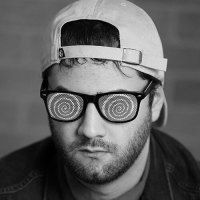The Pharmacist: Inside The Mind of Dr. Jacqueline Cleggett
The story of Jacqueline Cleggett in Netflix's gripping doc series The Pharmacist is a sad tale of addiction.
For the majority of Netflix’s limited documentary series, The Pharmacist, Dr. Jacqueline Cleggett is a name shrouded in mystery. There are limited photos of Cleggett, the former physician who established a shady medical practice outside of New Orleans, a practice that became a notorious OxyContin “pill mill.” Much of the footage that accompanies her name is hours of home video filmed outside her office by Dan Schneider, a concerned citizen, moralistic pharmacist, and grieving father.
As the series unfolds, Schneider is inspired to take action after the drug-related shooting death of his son, Danny Jr., and aims to clean up a community devastated by the opioid crisis by taking down Cleggett. Without seeing much of Cleggett through three episodes, the mounting circumstantial evidence builds her up to be a monster ravaging a community for her financial benefit. The series then leads us to a shocking reveal in episode 4: Cleggett agreed to a sit-down interview to tell her side of the story nearly two decades later. She remains in denial about losing her license, her role in the region’s opioid problem, and the unfathomable rate at which she prescribed OxyContin to her patients. Her story is also one of addiction and illustrates deeply rooted problems within the medical and pharmaceutical industries.
The Pharmacist co-directors and executive producers, Jenner Furst and Julia Willoughby Nason, gave Den of Geek insight into the production of the limited series in a recent interview (which you can read in full here) and elaborated on their interaction Cleggett, who was stripped of her medical license in 2002.
“We did do a long interview with her, and the highlights obviously make the film, but the reality was that it’s a sad tale,” Furst says. “It’s a sad tale of addiction, of grief, that parallels a lot of the addiction stories that we see in the series.”
After losing her license, Cleggett was plagued with health and addiction problems–plus numerous lawsuits from former patients. She eventually accepted a plea deal for three months of probation in 2009 on conspiracy to dispense and distribute controlled substances, avoiding jail time.
To land the interview, Furst reached out to Dr. Cleggett to assure her that the creative team behind the film was committed to hearing all sides of the story. When we spoke with Furst, he reflected on Cleggett’s participation in the documentary as a way to empathize with a person who took the wrong path, rather than demonize her.
read more: The Best Documentaries on Netflix
“Dr. Cleggett herself was addicted,” he says. “She is still somewhat in denial about that, as we see in the interview. It’s a sad story. She was the top of her class. She was one of the only African American female doctors in New Orleans who had these types of credentials.
“She could’ve done anything. She could have been anyone. We deeply empathize with that, and also empathize with the idea that people can go wrong. We didn’t want to fall into this idea of demonizing her through this trope of this evil doctor.”
When Furst met with Cleggett, she insisted on sharing documents with the creative team, some of which she believed would exonerate her. That wasn’t the case when the documents were held up to the light.
Says Furst, “When we cross referenced the facts, some of the facts were in her favor, but the vast majority show someone who was overprescribing and who was running a pill mill. And I think to this day she denies that that’s what she was doing. But the case is the case. And we show the United States against Jacqueline Cleggett, and the facts are the facts. I think that she has had a long, long period of suffering after her clinic was shut down; car accidents, illnesses, strokes, multiple brain surgeries. So she has paid a serious price, karmically, but she’s still lost in some kind of netherworld when it comes to taking accountability.”
Removing Cleggett unfortunately didn’t solve the problem for the St. Bernard, Louisiana community and greater New Orleans area. According to a NOLA.com / Times-Picayune report, more pain clinics popped up in the region to take Cleggett’s patient base: “The epidemic worsened. In late 2004, the parish coroner lamented the unabated overdose death toll, attributing most of them to ‘recreational use of prescription pills.’ The problems persist today. In the last few years, St. Bernard has posted the second-highest drug overdose rate in Louisiana, higher than any of its neighboring parishes, according to the Robert Wood Johnson Foundation’s county health rankings.”
At several points in the series, Schneider links overdose deaths back to Cleggett’s practice. Cleggett left a scar, one that can never be healed, on the community that she took an oath to help. In the final episode, Furst wanted to look beyond the proven wrongdoing of Cleggett, and the drug problems at the hyperlocal level, and examine how doctors nationwide were influenced by Big Pharma to perpetuate the cycle of opioid abuse.
“We wanted to also show how orchestrated the campaign was to deceive doctors, by Purdue Pharma,” he says. “This is documented stuff. They deceived doctors systematically about the impact and about the risks related to OxyContin. And I think that Dr. Cleggett fell victim to that. And then there was a personal side to that, that she fell victim to the same disease that [Schneider’s son] Danny Jr. fell victim to.”
Read more on The Pharmacist: Inside Dan Schneider’s Real-Life Superhero Story.
